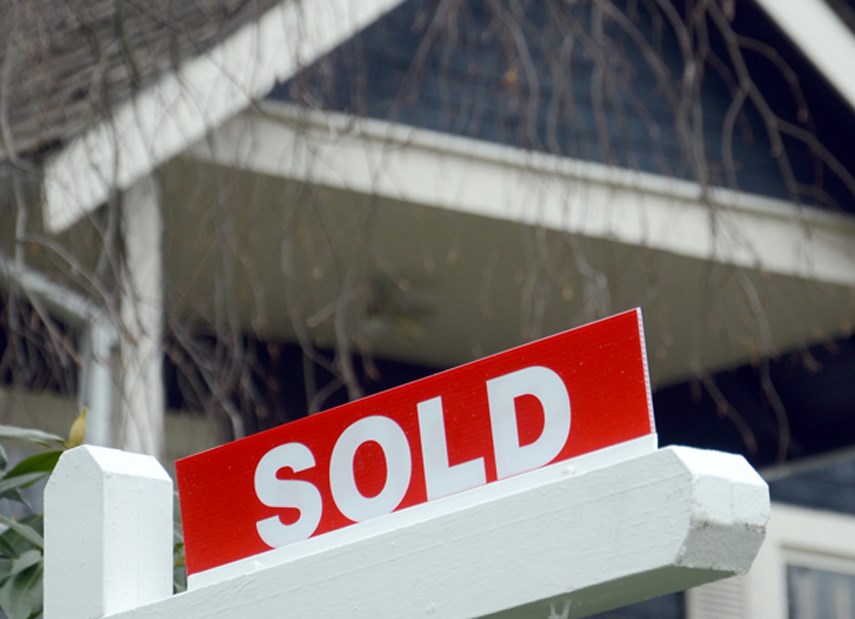For the second pandemic year in a row, trends fuelled in part by COVID and responses to it have helped push North Shore property assessments into significant increases.
Assessment notices out this week show values of typical single-family homes up between 21 and 22 per cent on average in North and West Vancouver. That’s significantly higher than the five to seven percent increase in values reported at the same time last year.
'Typical' home in District of North Van now worth $1.93M
Single-family homes in the City and District of North Vancouver increased the most in value – 22 per cent for a typical home. In the District of North Vancouver, that pushed a detached home worth just under $1.58 million last year up to a value of just over $1.93 million this year. In the City of North Vancouver, a “typical” single-family home worth $1.45 million last year was worth just under $1.78 million this year.
Typical single-family homes in West Vancouver – already among the highest valued in the Lower Mainland – increased by an average of 21 per cent, according to BC Assessment, from $2.47 million last July to $2.99 million this year.
Those kinds of increases reflected similar trends across the Lower Mainland of hikes in detached home values. North Shore increases fell squarely in the middle of those increases, which ranged from a 16 per cent increase in the City of Vancouver, to massive 35 and 40 per cent hikes in parts of the Fraser Valley.
Condo values up 10% to 15%
Detached home value increases were higher than condo increases in all areas, although condo values were also up. On the North Shore, condo and townhome values were up 15 per cent in the District of North Vancouver and in West Vancouver. A “typical” strata home in the District of North Vancouver was up from $727,000 last year to $834,000 this year. In West Vancouver, a condo worth just under $1.16 million last year was worth just under $1.33 million this year. In the City of North Vancouver, condo values rose an average of 10 per cent, hiking a condo worth $690,000 last year to a value of $762,000 this year.
Bryan Murao, B.C. Assessment’s deputy assessor for the Lower Mainland, said the increased property values reflect “the widely reported heightened demand among homebuyers during the COVID-19 pandemic.”
In the Lower Mainland, the farther from the city centre, the higher the increases have generally been.
That may be reflective of new work-from-home scenarios that have meant people “don’t have to live where they work anymore,” said Murao.
Workers who only have to report to the office once or twice a week may also find longer commutes more bearable, he said.
The assessment values – which reflect a snapshot in value on July 1 – appear to have held steady, or even increased slightly through the end of the year, he added.
Statistics out Wednesday from the Real Estate Board of Greater Vancouver showed the “benchmark” selling price of a typical single-family home in North Vancouver sitting at $1.968 million in December, while a “typical” detached home in West Vancouver had a benchmark sale price of $3.224 million.
Increases vary by neighbourhood
Within both North and West Vancouver, there are some marked differences in assessment increases between neighbourhoods. Single-family homes in Ambleside, for instance, rose an average of 34 per cent in value over last year, according to B.C. Assessment. In Westmount, the increases were 20 per cent and in Chartwell they were 25 per cent.
In North Vancouver, homes on the Dollarton waterfront were up 30 per cent on average, and detached homes in Grousewoods rose almost 29 per cent. Homes in both Blueridge and Lynn Valley were up an average of 27 per cent, while increases in the Norgate and Pemberton area were a more modest 16 per cent.
One of the factors driving up prices and home values in North Vancouver is lack of supply, said real estate agent Brent Eilers of Re/Max Masters Realty.
“In North Vancouver, we’re down 42 per cent in listings,” he said, adding that if buyers don’t have choices, that often drives up prices.
As “pandemic fatigue” sets in, people have become wary of selling, in case they can’t find something to move to, he said.
In West Vancouver, there can be also be significant differences between the “lower end” of the market, including homes worth under $3 million, and the “high end” of the market, including mansions that sell for over $5 million, he said.
This year, 12 of the top 100 highest-valued homes in the province are on the North Shore – all in West Vancouver.
Gap between haves and have-nots widens
Andy Yan, director of SFU’s City Program, said the latest round of property value increases serve to emphasize the continued disassociation between incomes and house prices in the Lower Mainland.
“Your wages probably didn’t increase 15 to 20 per cent,” he said of the recent assessment hikes.
The difference between the haves and the have-nots has been exacerbated by the pandemic, he said.
Some people in higher-paying occupations have been able to work from home and even save money over the past year by foregoing treats like vacations, he said. Those people now have more choice about where they live and access to cheaper credit in the form of low interest rates, he said.
But Eilers said others who must qualify for big mortgages under the federal government’s “stress test” for borrowers are still feeling the squeeze.
Those who are renting are generally in an even more precarious situation, added Yan, and are usually worse off than they were before the pandemic.




